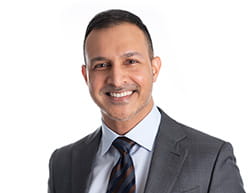Annual holidays, long weekends, staycations, or visiting "a place in the sun" are all monikers for time spent away from home, and one thing the past pandemic year has highlighted for many people internationally is that time away is a quickly missed luxury when out of reach.
Dubai has continued to embolden its position as a go-to destination for sun seekers in recent times, particularly with Brits, Europeans and Russians, being seen as a safe, available and upmarket destination. From the perspective of holiday property ownership, many have started to see the emirate as a more newly lucrative incarnation of what the Costa Blanca represented in the 1980s.
The announcement of Law 14 of 2020 (the New Law) by Dubai's ruler, Sheikh Mohammed bin Rashid Al Maktoum, of an update in formal regulation around timeshares in the emirate acts to bolster the relationship between tourism and real estate.
What is a 'timeshare'?
A timeshare is a way of dealing with property that can confer rights of use or, in some specific cases, rights of ownership. The roots of the concept are, in fact, in joint property ownership which came with an agreed constitution between purchasers stating when each of the joint owners was entitled to use of the property. The commercialisation of this model over time, the inclusion of property managers and the commonality of buy to let investments have moved timeshares to a multi-party enterprise where rights for holiday or occasional use per annum are granted to each timeshare property user.
Fractional ownership, similar to the historic model of a timeshare, is sometimes referred to as "deeded", as each timeshare property user is also an owner that has been conferred proportionate ownership rights in that property which are reflected on the relevant title.
Rights to use can be structured by the amount invested where, for example, the investment value equates to usable time in the property. This type of ownership is, at the time of publication, the most regular in Dubai. Alternatively a tokenised or points based system could be in place, where time can be purchased and banked, then potentially traded to other users, for time in the property.
The timeshare position in Dubai
Although the principles of timeshare are an issue of real estate, it is Dubai’s Department of Tourism and Commerce Marketing (the Department) that has been given responsibility to oversee all timeshare industry activity, in accordance with the New Law.
The Department is now required to:
a. Classify and list timeshare units under the New Law;
b. Grant relevant permits, license and approvals for timeshare facilities;
c. Ensure compliance with relevant regulations and bylaws;
d. Develop the terms and conditions and technical standards required for timeshare facilities; and
e. Establish a database for timeshare facilities.
The New Law is aimed at encouraging investments in the vacation ownership sector and finding appropriate premises that would be adequate residential alternatives for tourists or visitors, that could reap a longer term benefit for owners has been prioritised.
The New Law sets out that permits for use of properties for timeshare are valid for a renewable period of one year, and the Department is then authorised to grant permits for up to four years based on a request from the permit owner.
The Dubai position does not only benefit timeshare users, but potentially also offers an additional level of security to property owners. Resale scams of timeshare properties have been reported in the emirate (where a tokenised package is sold to a third party unlawfully, resulting in a payment for holiday accommodation that doesn't exist). The database of timeshare facilities and the standardisation of terms foreseen by the New Law should act to minimise exploitation potential.
Taking steps towards a timeshare
The timeshare market has clearly been identified as one for growth in the UAE and it will be interesting to see how that trend develops in the Gulf region at large. Trowers & Hamlins has experience in advising and transacting in real estate across the region for investors, developers, property owners and individuals.
